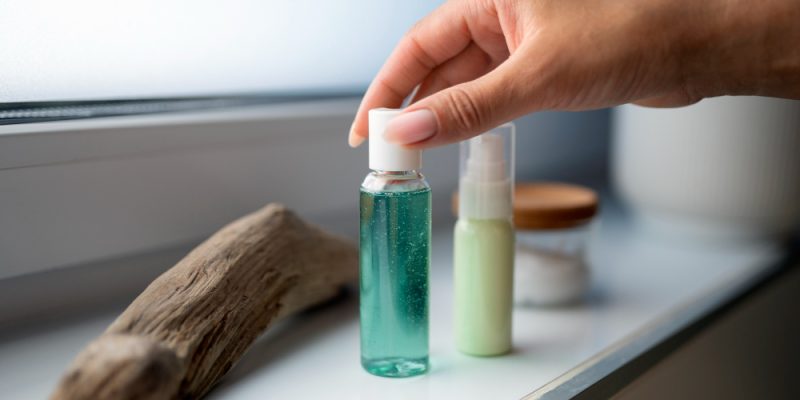Can Cologne Expire? How to Tell If Your Fragrance Has Gone Bad

Cologne is one of those timeless personal items—an invisible accessory that can boost confidence, leave a lasting impression, and even evoke memories. But have you ever wondered if cologne expires? The short answer is yes.
Like any product containing oils and alcohol, cologne has a shelf life. Over time, exposure to air, light, and heat can alter its composition, changing its scent or even causing it to spoil.
In this article, we’ll explore how long cologne lasts, the signs it has expired, what causes it to deteriorate, and how to properly store it so your favorite fragrance stays fresh for years.
Does Cologne Really Expire?
Yes, cologne can expire. While it won’t necessarily “rot” like food, it can lose its original scent and chemical stability over time.
Colognes are made from a blend of essential oils, alcohol, and water. These ingredients are sensitive to oxidation—a natural process where exposure to oxygen causes chemical reactions that can break down fragrance molecules.
Typically, most colognes have a lifespan of 3 to 5 years, though some high-quality fragrances can last even longer if stored properly. Others may start to degrade after just a couple of years if exposed to direct sunlight or temperature changes.
What Happens When Cologne Expires?
When cologne goes bad, it doesn’t always become harmful, but it can definitely lose its charm.
Over time, the fragrance notes—top, middle, and base—start to change. The top notes, which you smell first when you apply cologne, are the most volatile and degrade the fastest. As these fade, the scent profile shifts, sometimes becoming dull, sour, or even rancid.
The alcohol content in cologne also evaporates slowly, which can make the scent smell stronger, darker, or off-balanced. The color might change slightly as well, especially in perfumes that contain natural ingredients or oils.
Signs Your Cologne Has Gone Bad
There are several telltale signs that your fragrance has expired. You can usually detect them with your eyes and nose.
1. The scent smells different:
If your favorite cologne suddenly smells musty, sour, or overly sharp, it’s likely past its prime.
2. The color has changed:
Colognes that were once clear or light amber may darken or turn cloudy. A noticeable color change often means oxidation has occurred.
3. It causes irritation:
If your cologne starts to sting or irritate your skin when applied, it may have chemically altered and should be discarded.
4. The bottle looks different:
Residue or buildup around the sprayer, or a change in texture when spraying, can also signal degradation.
When in doubt, test a small amount on your wrist. If it smells “off,” it’s best to replace it.
Factors That Affect Cologne Shelf Life
Several factors influence how long a bottle of cologne stays fresh:
- Exposure to light: Direct sunlight breaks down fragrance molecules, speeding up expiration.
- Air exposure: Each time you spray, a bit of air enters the bottle, which slowly oxidizes the ingredients.
- Temperature changes: Extreme heat or cold can alter the fragrance balance and affect longevity.
- Ingredients used: Natural ingredients tend to degrade faster than synthetic ones. Citrus and floral scents also expire sooner due to their lighter molecular structure.
In essence, how you store your cologne is just as important as what it’s made of.
How to Store Cologne Properly
Proper storage can extend the life of your cologne for several extra years. Follow these expert tips to keep your fragrances fresh and long-lasting:
1. Keep it away from light:
Store your cologne in a dark place, such as a drawer or cabinet. Avoid displaying it on bathroom counters or window sills where sunlight hits directly.
2. Maintain a consistent temperature:
Heat and humidity can damage your fragrance. Keep it in a cool, dry area—ideally between 60°F and 72°F.
3. Keep the cap on tightly:
Always close the bottle after each use to prevent air from entering.
4. Avoid shaking the bottle:
Shaking can introduce air bubbles that accelerate oxidation.
5. Consider the original packaging:
Storing your cologne in its original box can protect it from light and temperature changes.
If you truly want to preserve your scent long-term, consider refrigerating it in a cool, dark space—especially if it’s a valuable or limited-edition bottle.
How to Make Cologne Last Longer on Your Skin
Aside from preserving the bottle itself, you can also extend the wear of your cologne throughout the day by following these tips:
- Apply after showering: Damp skin helps lock in the scent.
- Moisturize before spraying: Apply unscented lotion first—hydrated skin holds fragrance better.
- Spray on pulse points: Focus on wrists, neck, behind the ears, and inside elbows where blood flow enhances the scent.
- Don’t rub your wrists together: This breaks down the fragrance molecules and changes the scent.
- Layer fragrances: Use matching scented body washes or creams for a longer-lasting aroma.
By applying fragrance strategically, you’ll enjoy your cologne’s scent longer without overusing it.
Can Expired Cologne Be Used Safely?
Using expired cologne isn’t dangerous in most cases—but it’s not ideal either.
If your cologne still smells fine and hasn’t caused any irritation, you can continue using it for casual occasions or as a room spray. However, if it smells sour or has changed texture, it’s better to discard it.
Using degraded cologne on your skin may lead to mild irritation, especially if the alcohol content or essential oils have chemically broken down. Always do a patch test before applying old cologne directly to your body.
Do High-End Fragrances Last Longer?
Generally, yes—luxury and designer colognes often last longer than cheaper ones. That’s because high-end fragrances use higher-quality essential oils, better alcohol bases, and refined preservatives, which help slow down oxidation.
However, even expensive colognes will eventually expire if not stored correctly. A poorly stored $200 fragrance can go bad faster than a well-kept $30 one.
So, no matter the price tag, storage and care are the biggest factors in prolonging the life of your scent.
How to Dispose of Expired Cologne
When your cologne has reached the end of its life, it’s important to dispose of it properly.
Do not pour it down the drain—it contains alcohol and chemicals that can harm the environment. Instead, spray the remaining liquid into a paper towel and throw it away. You can also check local waste disposal programs that accept perfumes and other alcohol-based products.
If you’re creative, you can repurpose the bottle. Clean it thoroughly and use it as a decorative piece or DIY diffuser bottle.
Conclusion
So, does cologne expire? Absolutely. While most colognes have a shelf life of about 3 to 5 years, proper care can keep them smelling fresh much longer.
The key is to store them correctly—away from light, heat, and humidity—and to recognize the early signs of expiration, such as changes in scent or color.
By treating your fragrance with care, you can enjoy its true aroma for years to come. After all, cologne isn’t just a scent—it’s a reflection of your personality and memories. Keeping it in good condition helps you carry that feeling with you every day.
FAQs
1. How long does cologne usually last before it expires?
Most colognes last about three to five years. However, certain scents—especially those with stronger base notes like wood or musk—can last even longer if stored properly.
2. Can I still use cologne that’s over five years old?
Yes, as long as it smells the same and hasn’t caused any irritation. If the scent has changed or the color has darkened, it’s best to replace it.
3. Where is the best place to store cologne?
Store your cologne in a cool, dark, and dry place—like a dresser drawer or closet. Avoid humid bathrooms or sunny windowsills.
4. Does cologne expire faster once it’s opened?
Yes. Once opened, the fragrance comes into contact with air, which speeds up oxidation. Try to use opened bottles within three years for the best scent quality.
5. Can expired cologne make you sick?
It’s unlikely, but expired cologne can cause skin irritation or allergic reactions if the ingredients have degraded. Always test old cologne before applying it directly to your skin.
Also read: Thick vs Thin Hair: Key Differences and How to Care for Each Type











